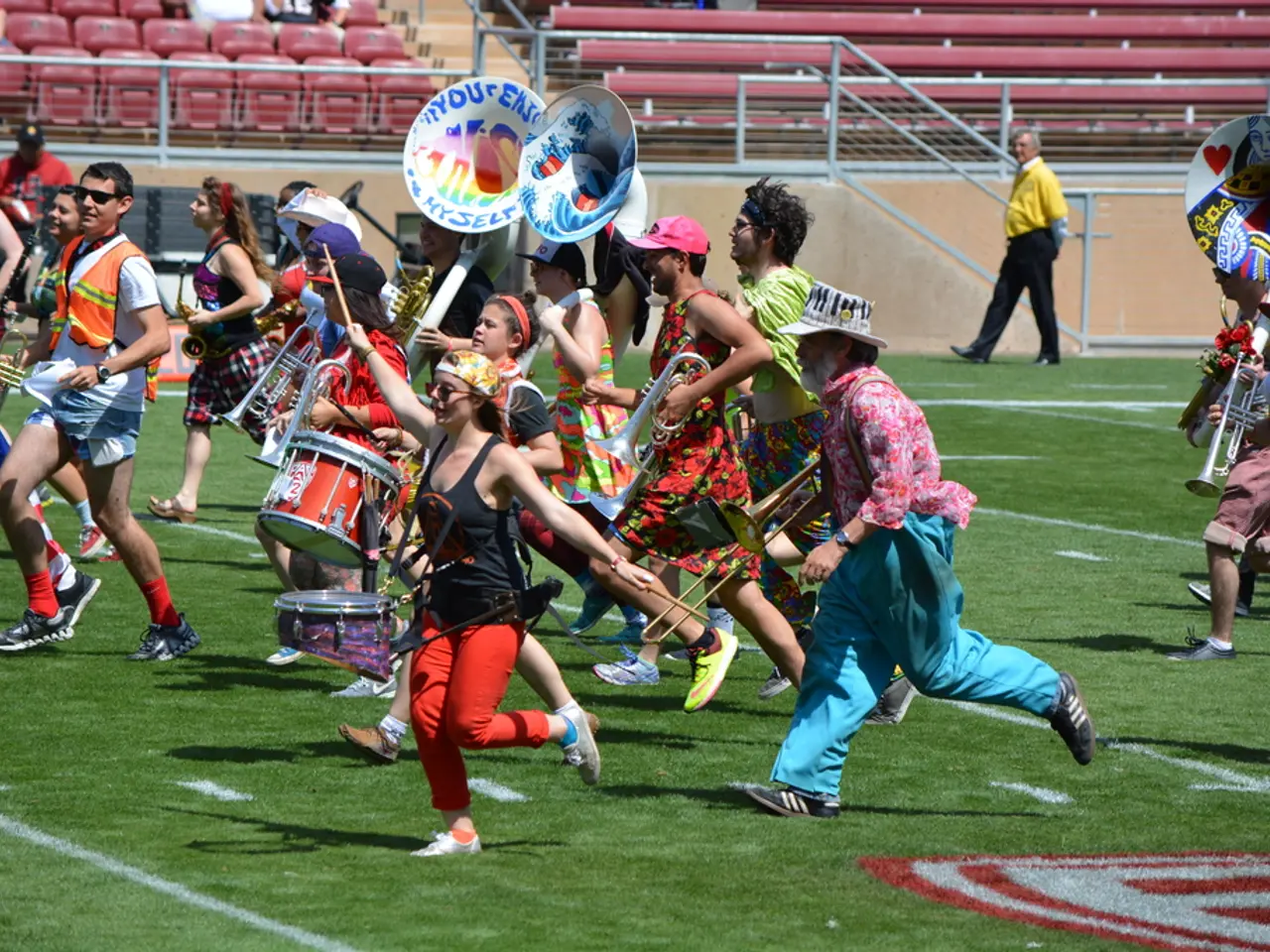Musical Narratives of History: Tunes That Capture a Nation's Saga
In the vast and ever-evolving landscape of human expression, music stands as a powerful conduit, connecting cultures and narrating histories. From the lush landscapes of Ireland to the vibrant streets of Africa, music serves as a melodic map that guides us through our past, informs our present, and inspires our future.
Music allows us to attune ourselves to the stories that have shaped our past, providing a poignant connection to ancestral roots. For instance, Gaelic songs passed down through generations serve as a remembrance of cultural heritage and a rallying cry for unity. In a similar vein, African American spirituals reflect the resilience of those who endured slavery, offering a poignant link to the past.
Every culture has its unique soundscape composed of traditional songs and instruments. The Irish fiddle tells tales of joy and sorrow, mirroring the history of the Irish people, while the djembe drum is used by African indigenous tribes for musical expression, communication, and storytelling. The Maori people of New Zealand use Haka, a traditional war dance accompanied by song, to convey ancestral stories and values.
In the current digital age, online platforms enable a global exchange of ideas, facilitating collaboration between musicians from different cultures. This is evident in the global music movement, which has brought together diverse musical traditions from around the world. Music can blend different cultural influences, creating new styles and genres that reflect global connectivity.
Retaining musical traditions is crucial for maintaining cultural identity, particularly in cultures where music serves as a primary form of record-keeping and education. Folk music, for instance, is often transmitted orally and is deeply rooted in national culture, preserving historical and personal events. This tradition ensures that cultural narratives are passed down through generations.
Music provides an opportunity to pass down traditions, ensuring that the stories embedded in music continue to be told and retold. Folk punk, for example, uses storytelling to connect past and present, fostering historical consciousness. Similarly, artists like Nas and The Roots use sampling to create songs that are innovative and conversational with history, transforming music into a layered narrative.
Music offers a platform for marginalized communities to share their experiences and perspectives, ensuring that their histories are not lost to time. The 1960s saw music playing a significant role in the civil rights movement, with songs like Bob Dylan's "Blowin' in the Wind" and Sam Cooke's "A Change Is Gonna Come" reflecting the struggle for equality.
Music has the ability to evoke strong emotions and empathy, making it an effective tool for cross-cultural understanding and communication. Despite cultural differences, music can evoke universal emotions, making it a powerful tool for bridging cultural divides and fostering global understanding. Festivals like the Kinshasa World Music and Tourism Festival celebrate cultural diversity and unity through music.
In conclusion, music is an integral part of the human experience, serving as a powerful conduit for cultural expression and historical storytelling. It captures the essence of a people, preserves shared memories, and provides a platform for voices to be heard across time. Sampling serves as an audio scrapbook, allowing listeners to hear historical context directly within modern music. Music acts as a living archive of cultural heritage, each song a chapter in one's lineage. It is a universal language that transcends linguistic and cultural barriers, allowing people from different backgrounds to connect through shared musical experiences.
Music serves as a tool for preserving family history, as the stories embedded in traditional songs passed down through generations, such as Gaelic songs, reflect the heritage of a people. In the same way, various music genres also provide insight into a culture's lifestyle, entertainment, and values, such as the Haka dance of the Maori people or African American spirituals. Furthermore, music allows for cross-cultural collaboration in the modern age, blending diverse cultural influences to create new styles and genres, thereby representing global connectivity.




